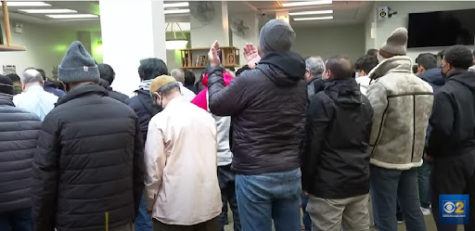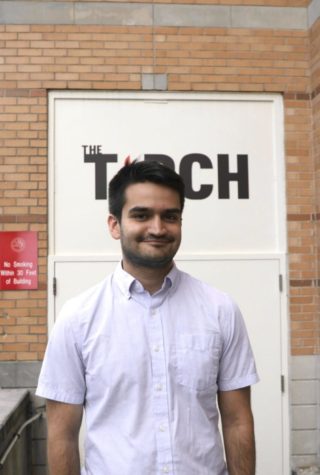
Photo Courtesy / CBS Chicago Youtube
Two weeks ago, all I could tell you about Ramadan is that it is a period of time during the Islamic calendar in which they abstain from food and water for some reason. Since I am not Muslim myself, I have never given the month serious thought. I am not alone in this either. Only a few of my friends are Muslim, and my entire family is Catholic. The call for serious reflection about the month has never presented itself.
However, there are lessons from Ramadan which Muslims hone in during this time which anyone could apply to their lives. Ideals like family, community, sacrifice, discipline and faith are what outline the month. It’s a lot more complex than simply abstaining from food and drink.
“One of the biggest misconceptions about Ramadan is that it’s forced, and Muslims do not enjoy it,” saids Ernes Selimovic, a St. John’s University sophomore. “The month is meant to be hard, but at the same time it’s rewarding.” Selimovic states that most of his friends enjoy the month as well as the vast majority of Muslims.
Ramadan occupies the ninth month in the Islamic calendar, which is tied to the lunar calendar. This is because the month begins and ends with a crescent moon shape. This year, it runs April 2 through May 1. Ramadan utilizes the previously mentioned values so that Muslims can strengthen their relationship with God.
Muslims believe that the prophet Mohammed was given the task of carrying out God’s message via the Quran throughout the Arabian peninsula in 610 A.D. during the Night of Destiny according to Homayra Ziad, director of Islamic Studies at John Hopkins, who spoke with USA Today.
Islam’s faith is built on five pillars. One of which is that of self restraint. This is why they refrain from food or drink throughout the day as well as negative thoughts, curse words, sexual activity and more. Muslims can then focus on their relationship with God, rather than that of the material world. They say an extra prayer at night, the Tarawih, on top of the five prayers that are obligated by Islam throughout the day.
Muslims break their fast in the evening after the conclusion of prayer, and a meal that consists of water and dates — small sweet fruits that resemble raisins — which are usually served in quantities of odd numbers. This is also a time where Muslims gather with friends and family to give thanks.
Many of the typical experiences one goes through during Ramadan will certainly be different this year. Due to the COVID-19 pandemic, the past two years have consisted of at-home iftars, or celebrations with friends and family in which their fasts are broken. Some iftars even went online, according to USA Today.
“It felt like you were in a box,” said Selimovic. “The sense of community was gone.”
The lessons that Ramadan teaches shouldn’t be ignored, even if one is not Muslim. Family and community are who we fall back on when all else goes wrong. Discipline and self sacrifice keep us humble and away from overconsumption. Faith is our motivation to continue living irregardless of circumstance. Giving another culture the attention it deserves to understand their beliefs is always an enlightening experience.









